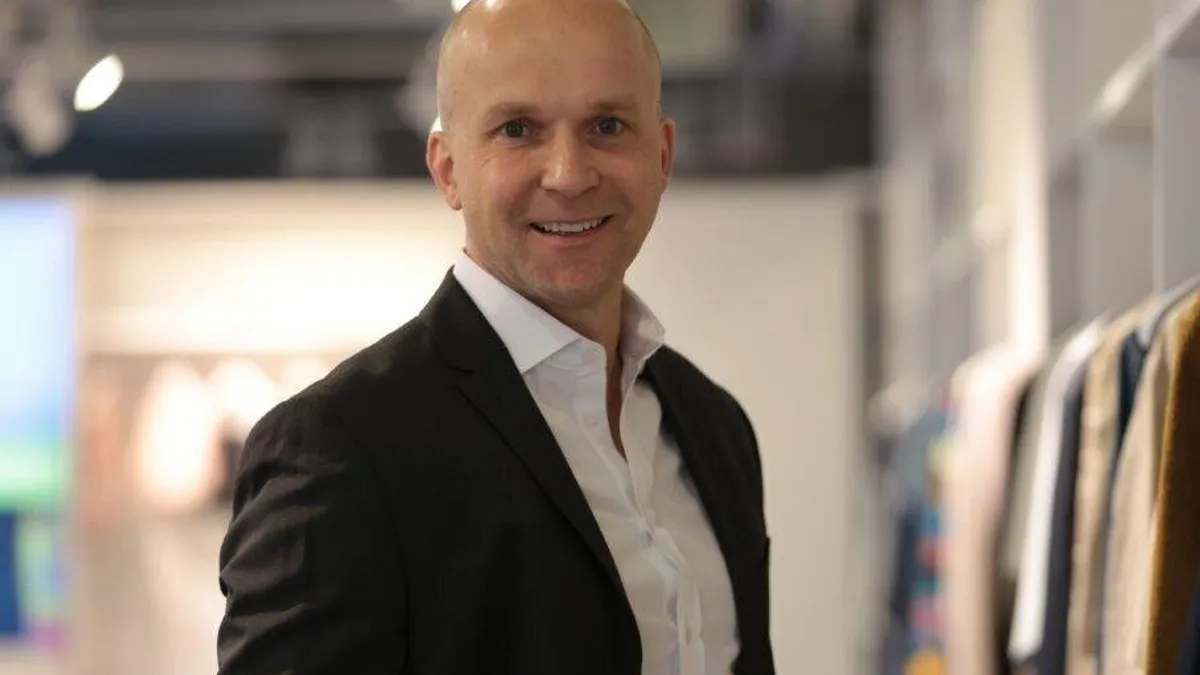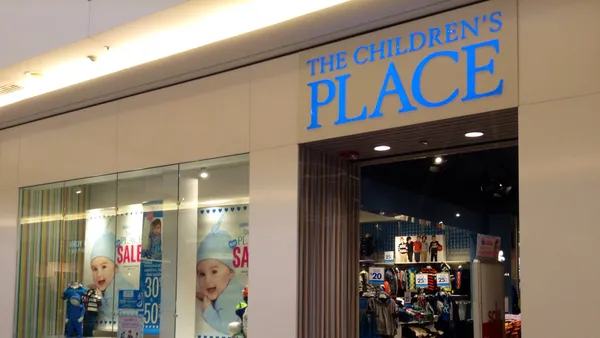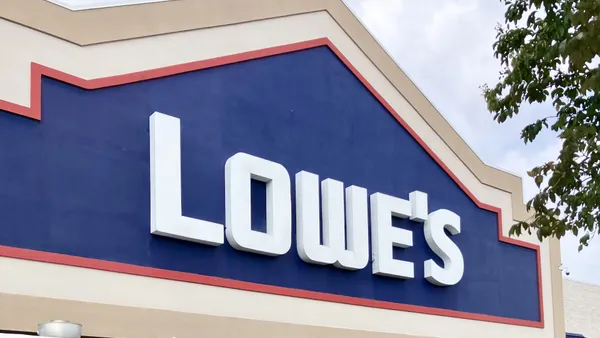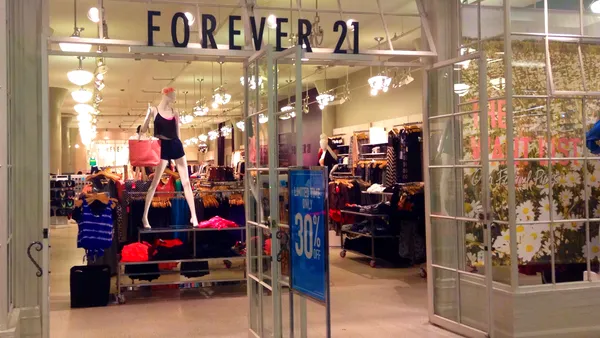Dive Brief:
- Less than two years after joining Forever 21 as CEO, Women's Wear Daily reports that Daniel Kulle hasn't been at the fast-fashion retailer for at least a couple of weeks. It's unclear who's serving in the role in the interim. Kulle resigned in part because the job wasn't a good fit, according to the report.
- Neither Forever 21 nor parent company Sparc Group (a joint venture of Simon Property Group and Authentic Brands Group) provided further details on the departure or possible replacement. In an emailed statement, Sparc CEO Marc Miller said, "We appreciate all that Daniel has contributed throughout his time with the brand and wish him the best in his future endeavors."
- After two decades at rival H&M, Kulle took the reins at Forever 21 in February 2020, shortly after mall REITs Simon and Brookfield, along with Authentic Brands Group, acquired it out of bankruptcy for $81 million. Brookfield this year sold its share to Sparc.
Dive Insight:
Kulle arrived at Forever 21 already facing a slowdown in fast-fashion sales and the challenge of reviving a bankrupt retailer once dominated by its founders — then, within weeks, it became clear that COVID-19 was reaching a pandemic level.
That meant a period with stores temporarily closed, a particular problem for Forever 21, which relies on brick and mortar for the bulk of its sales. While consumers have returned to in-person shopping since vaccinations became available, variants of the disease are helping maintain the hefty rise in e-commerce sales fueled by the pandemic.
Malls earlier this year reported that foot traffic was beginning to match or even exceed pre-pandemic levels, but that has waned in recent months as the pandemic persists and as the apparel spending boom shows signs of leveling off. Forever 21 stores are mostly found at malls.
Moreover, supply chain snafus are helping further stoke a boom in resale. Used clothes are also seen as a sustainable option, especially compared to fast fashion's high-turnover approach. That and other pressures have led UBS and Moody's to predict ongoing threats to fast fashion's market share.
Editor's note: This post has been updated to include a statement from Sparc CEO Marc Miller.














